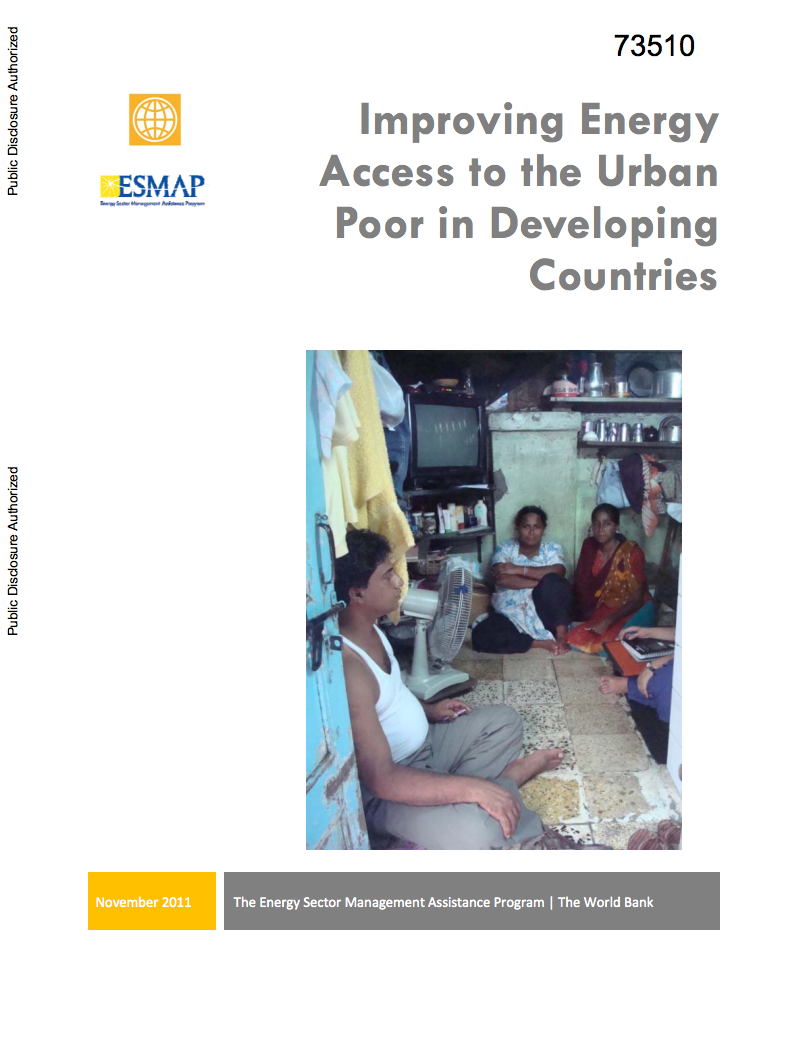Improving Energy Access to the Urban Poor in Developing Countries
The case studies documented in this
report aim to inform the energy access community (including
practitioners, civil society groups, project planners, end
users) about best practices of successful energy access
initiatives targeted at slum dwellers. Eight case studies
focusing on electrification and household energy were
selected from India, Bangladesh, Colombia and Brazil, all
countries that have had varying success in providing access


